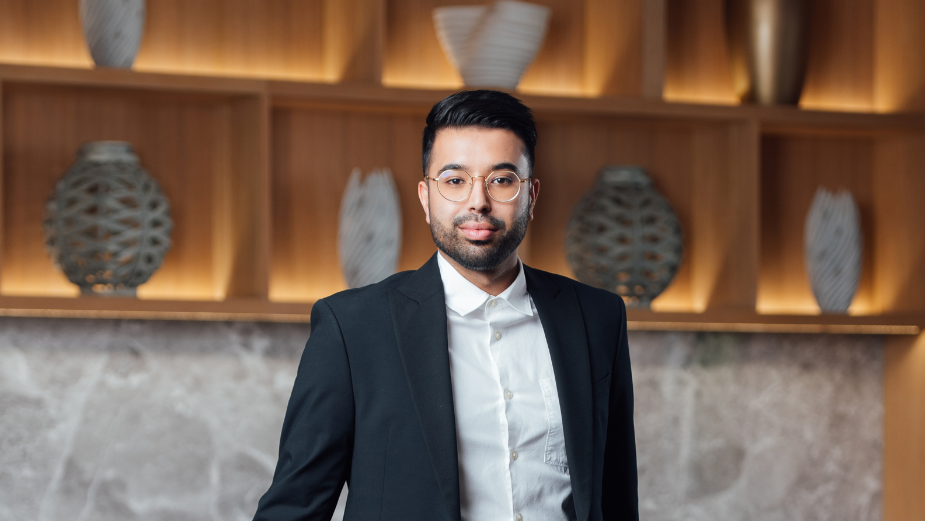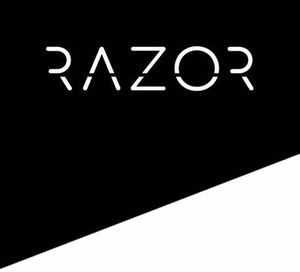
Vikash Gajjar on Questioning the ‘Why’ behind His Work

Vikash Gajjar started out in advertising as a copywriter working for South African agency King James, after studying for a degree in journalism. After a while, he joined M&C Saatchi Abel as a senior content producer, where he honed his understanding of integrated communications platforms and refined his ability to connect seemingly disparate dots. It made for an easy transition into strategy.
Now at Razor PR, M&C Saatchi’s strategic communications agency, Vikash has worked with Anglo American, Dimension Data and Virgin Active. In 2022, working with the Data and Analytics Hub at Razor PR, he led the conceptualisation and launch of a world-first precision conversation measurement tool – ‘The Talkability Index’. The tool allows communicators to precisely measure the effectiveness of communication efforts across three data points – conversation, opinion and endorsement. He calls it a “seminal highlight” in his career.
Vikash speaks to LBB’s Nisna Mahtani about his journey, his hidden talent and his advice for budding strategists.
LBB> When you were young, was there any indication that you would wind up working in the creative industries?
Vikash> I have always had a love for words – something I pursued through extracurricular activities like writing for and editing our school magazine and contributing to the annual yearbook. But pursuing a career in communications (let alone the creative industries) was never on my radar. After high school, I attempted to study accounting with law, which didn’t last longer than a year. During those very long 12 months (which included two failed economics and mathematics courses), I realised I needed to do something else, something I would enjoy doing every day. I switched to a journalism degree with a specialisation in print media, with the goal of one day working in the magazine industry.
LBB> You studied journalism before starting your career in advertising. Do you remember your first introduction to the industry and some campaigns that were formative back then?
Vikash> Whilst completing my degree, I interned several times at Conde Nast to up my work experience. In the final year of my degree, I coveted a monthly column for GQ South Africa, partly in the hope that it would lead to full-time employment. Alas, there were no vacancies after graduation. At the time, my cousin was working in client services at King James (now part of Accenture Song) and they were looking for a writer. In retrospect, I don’t think there was a better place to cut my teeth in advertising, working on some of the biggest and coolest brands in South Africa, in an agency where creativity continues to govern across all departments.
One of the very first brands that I worked on was Sanlam. I was responsible for the social media and digital copywriting for their ‘Savings Month’ campaign. Most memorable was the level of collaboration across the entire agency at all levels, especially learning from and working alongside some of the very best creative minds in the industry. The campaign went on to win at the Loeries that year, resulting in me adding a few awards to my name too and making the list of the Top 50 Writers in Africa and the Middle East.
LBB> Starting as a copywriter, do you remember the first few campaigns you worked on and how it felt to have your work out there for the first time?
Vikash> To this day, having your work out in the world is quite surreal. Creativity is an act of vulnerability. So even today, after almost a decade in the industry, there is still a mix of both anxiety and pride when my work makes its way out into the world. Something I look back on fondly is launching the new strategy for Rimmel London on social media. My art director (Morgan Strutt) and I had been working together as a team for a while, but on the odd jobs, and Rimmel London was the first brand that we were given custodianship of. From the conceptualising to the shooting and writing of the monthly content, I can honestly say this time in my career was defining as it filled my ‘creative toolbox’ with skills and lessons that remain necessary in the work I do today.
LBB> You’ve worked across both Cape Town and Johannesburg, can you tell us about some of the characteristics of each city and how they lend themselves to creativity?
Vikash> Life’s too short for this debate. But I do believe that creativity flourishes equally in both cities. We work in an industry that exists because of people who are brave enough to put bold ideas into the world. It’s therefore up to the person to decide which city they feel most inspired in if a city is a contributing factor towards their creativity. Personally, I love the pace of Johannesburg. It beats faster, and moves quickly. Cape Town, on the other hand, is more relaxed and laid back. *cue the debate that is about to ensue*
LBB> As a part-creative, part-strategist, what would you say are some of the factors that brands should consider when starting out with creating a campaign?
Vikash> Be honest. Ask yourself why. A lot.
Why does this brief exist? What do we need to solve? Why? Will the idea deliver on effectiveness? Why? What does success look like? Why? Can it be properly measured? Why?
By asking why, you naturally force clarity. And in today’s world, clarity and simplicity matter.
LBB> Can you tell us about some recent projects where you’ve combined creative and strategy to form a strategic communications approach for clients? What was the most rewarding part of the process?
Vikash> In building distinction into our offering and how we work – as a strategic communications service – we invested exponentially into our strategy and creative teams, who work hand-in-hand to solve complex business challenges for our clients.
At the 2023 Sabre Awards EMEA, we were awarded the best reputation work in EMEA for the third year running, this time for our work on mining company Anglo American. The company needed to showcase its 100% commitment to net zero and so, built a world-first, long-haul, hydrogen-powered mining truck. The proof of concept showcased the ability of the mining sector to pioneer the much-needed transition to a society driven by clean energy – without undermining the impact the industry makes on social and economic development across geographies. We established trust in mining's ‘just transition’ and elevated the importance of this world first in securing such trust amongst mining communities, stakeholders, and the general public.
Our work revolved around the insight that zero is indeed the biggest number. Although it has no value, it can add infinite value to other numbers and ambitions. And so, to start big, we went 500 tonnes light, showcasing how a 500-tonne truck can change the world by being light on emissions, light on the environment and fuelled by the lightest element on earth – and we gave this light story some heavyweight backing with the voice of the president of South Africa in the driving seat.
LBB> Tell us about The Talkability Index as a measurement tool, how it leverages conversation, endorsement, and opinion, and when you realised it would be beneficial to create.
Vikash> At Razor, we committed that our work will always be effective and measurable against definitive business results. For too long, PR has always been evaluated against our advertising peers, using AVE (advertising value equivalent) as a measurement of success. We wanted to challenge this and bring a new form of measurement that more accurately expresses the value of our work.
In answering this, we built a precision conversation measurement tool that measures a business’s talkability across three data points: Conversation (the resonance of the conversations you’re having), opinion (the distinctiveness of your conversations and how compelling your point of view is) and endorsement (your ability to convene, indicating affinity). These three data points average into a talkability index that can be overlayed onto business objectives and strategic comms investment. We launched this tool in October 2022 after months of development and it’s a seminal highlight of my career.
LBB> Where do you find your inspiration within the working world?
Vikash> People. Real people. The way they speak about brands/businesses and their associations, the products they use, how they talk about them, and how they think about them. I find people incredibly inspiring as we are all so different.
I also read a lot. To be a decent strategist, you must read – everything from current affairs to fiction, books to magazines, whitepapers to LinkedIn carousels. After all, our jobs are to connect the seemingly disparate dots into a clear, compelling and persuasive narrative.
LBB> Of course, it’s equally important to have hobbies outside of work. What takes up your free time when you aren't working?
Vikash> I’m a homebody, so I am at my happiest when I am at home with my partner, and Amelia, our beautiful Labrador. We spend a good amount of time watching TV – everything from documentaries to reality to comedy to fiction to movies. It’s a great way to relax and unwind after a long day or tough week. I am also the biggest ‘Golden Girls’ fan. The show has been on repeat since the pandemic. It brings me such joy!
We are also massive foodies and love trying out new spots or revisiting our favourites. If you’re ever in Johannesburg, ‘PRON’ is a must-visit for great noodles. ‘Saint’ also serves fantastic food in an exquisite atmosphere.
LBB> Are there any insights or useful pieces of information you’d be keen to share with people who are just starting out in the industry or want to move into strategy?
Vikash> Don’t wait to earn the title of a strategist before you start doing strategy. When I was a creative wanting to make the move, I took the briefs that the strategists got and worked on them myself, in my own time, building up my own ‘portfolio of work’. It’s also a great litmus test for your aptitude for the job. I think planning has been somewhat glorified by claiming the ‘strategist’ title, but those wanting to make the move need to ask themselves if they are problem-solvers at heart. It’s the crux of the job. They also need to want to absorb and be stimulated by the world around them. Critically, though, is an appreciation that your strategy isn’t ‘the work’: it’s the brief for the work.
LBB> What’s one unexpected thing about you that most people don’t know?
Vikash> I sing. After matriculating in 2011, I spent a year training as a Hindustani semi-classical singer in Mumbai, India.










